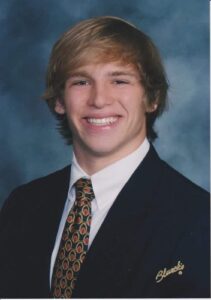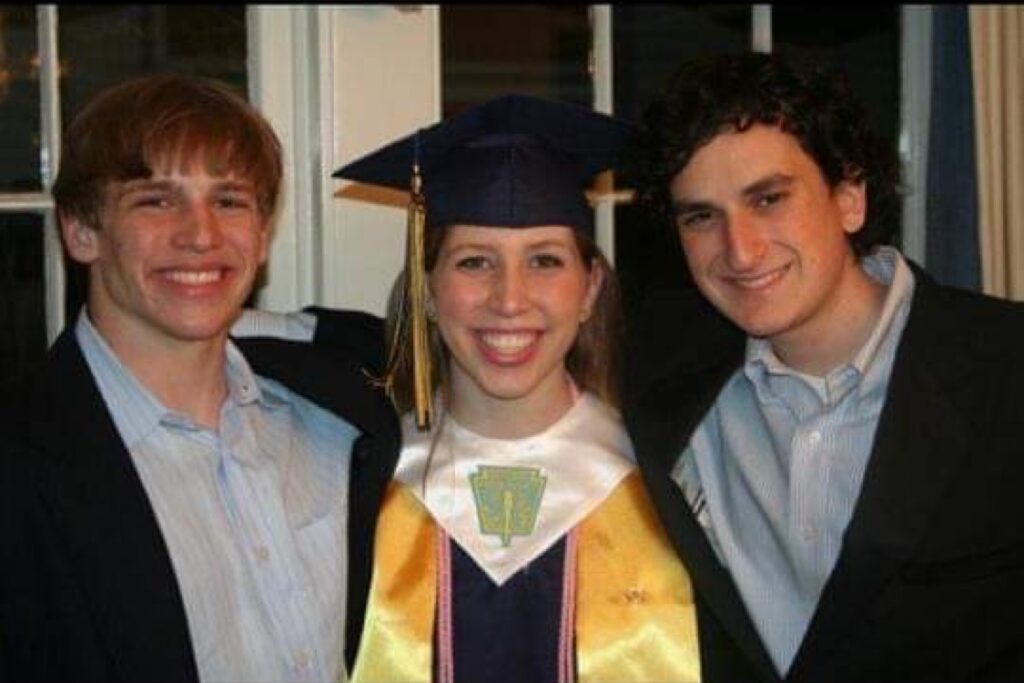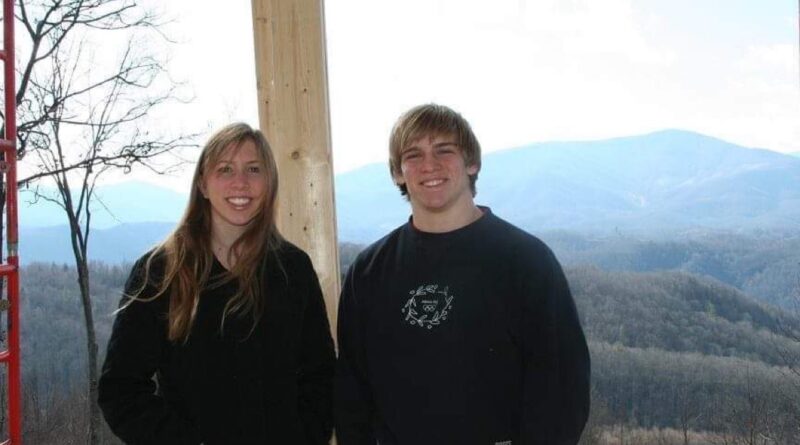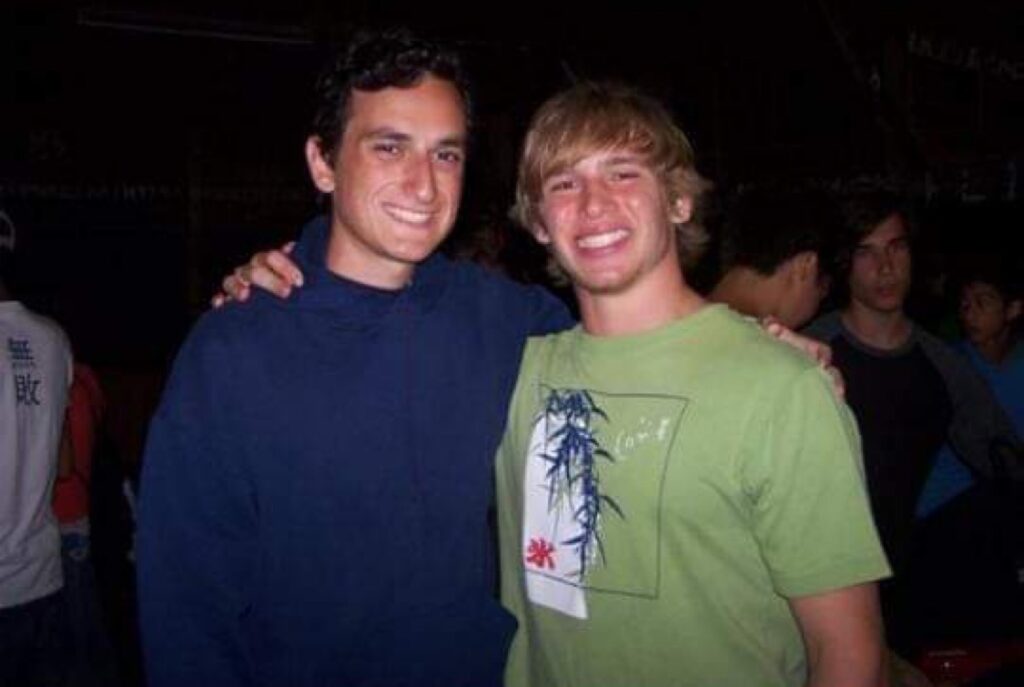‘Something Needs to Change’
Before the Sixth Anniversary of Wrestler’s Death, Sister Has Questions
Tom Klessig went for a walk in his neighborhood, and never came back home.
The 23-year-old had, by most accounts, been dealing with schizoaffective disorder for some time. He had moved back home with his parents in University Park.
But at one time, Klessig was a standout high school wrestler with a ton of promise. He was part of a team at Highland Park High School that had brought home championships, including the 2007 Texas State Dual Championships, where his coach bumped him to a higher weight class and he still pulled off a win.

“Tom Klessig has been wrestling better than I’ve ever seen him at 152,” Tom Marzoula said at the time. “And knowing that probably no one could avoid being pinned by Rogers, we pushed him to 160 and he won against a solid, bigger opponent. Kyle Anderson may have won the match for us, but Tom Klessig allowed us to win it.”
To his sister Elizbeth, known by most as Biz, he was always and foremost her brother and friend. She now lives in Oklahoma.
“He was a very athletic kid,” she said. “He did everything – all the different sports. We used to pass the ball around together – him, me, and my dad, or we would go on a bike ride to grab lunch on Sundays, and my mom usually would drive out there to meet us.”
“He was, man, a handful though,” she added. “Tom was always very headstrong and if he wanted to do something he would do it, but if he didn’t want to, he just wouldn’t do it. He didn’t really care about necessarily going with the crowd.”

Biz said her brother loved to write rap songs, and recalled the summer they lifeguarded together as “the best.”
“He was … I don’t even really know how to – how do you describe someone in a few sentences?” she said. “He was my brother, and I miss him.”
When he returned home, he had a few run ins with University Park police – a car accident that resulted in his father, Richard, showing up at the scene to explain to police how best to get Tom to cooperate, explaining, he told the Austin American-Statesman, that yelling at him didn’t have good results.
“I said, ‘He won’t respond to that. You have to be polite.’ If you were polite to him, he would be polite back. If you were rough with him, he’d be rough back,” Richard Klessig told the paper.
At other run-ins, officers took him to a psychiatric hospital. So what happened on Sept. 23, 2014, has raised questions that continue to linger for his family.
According to accounts, private security had called University Park Police after watching Klessig linger and appear to peek at the yard of a home on Lovers Lane.
“He was just four and a half blocks from home,” said Biz.
When officers arrived, they requested that he sit on the curb, and according to video, he refused.
He scuffled with police, according to the Texas Rangers report, and ran. Police caught up to him at the 4000 block of Amherst Avenue, and he again refused to comply with their orders.
“Klessig was pepper sprayed with no noted effect,” the report said. Five officers took him to the ground, subduing him before placing him in handcuffs and leg irons. Paramedics were called to decontaminate Klessig and the officers, and as they discussed where to take him, he collapsed and stopped breathing. He was taken to Texas Health Dallas Presbyterian hospital, but was never revived.
The entire interaction between police and Klessig took about 15 minutes.
A grand jury declined to indict the officers.
University Park assistant chief of police Jim Savage said that nowadays, all officers in the department are required to attend a 40-hour mental health peace officer course and de-escalation training.
De-escalation training, crisis intervention and cultural diversity are all mandated for any officer who only have a basic peace officer certification every four years, Savage said. In addition, the Texas Commission on Law Enforcement (TCOLE) mandates officers attend Crisis Intervention Training and Civilian Interaction Training within two years of initial licensing. Officers licensed before Jan. 1, 2018 were required to have this course completed prior to Jan. 1 of 2020, he said.
“All UPPD officers are required to take the Mental Health Peace Officer training and de-escalation training regardless of the certification level and/or years of service,” Savage said. “New material and course content is added to courses from time-to-time.”
Even as the family heads into the sixth year without him, his sister says they still wonder about what it would’ve been like if someone else had responded to that call that night.
“For a long time, I thought that there should be better training for police for situations like that – that the problem is they’re not executing their jobs as they should,” she said. “But now I do think that something needs to change – either we train officers better, or we start sending people who are better equipped to address issues like mental illness – or at least someone who won’t escalate the issue.”
“I mean, what would’ve happened if someone had said, ‘Oh, he’s just four blocks from home – what if we just walked him home?’”
Biz says conversations happening now about the role of police and whether funds could be better allocated to organizations and professionals who are equipped to deal with mental illness, social issues, and more, resonate with her.
“First, Black Lives Matter, and there is no doubt about that,” she said. “I feel strongly about that. Black people die from police brutality far more than white people.”
“But I also know that people are dying too often from police brutality,” she continued. “Nobody should be hurt.”
“It was completely unnecessary,” she said of her brother’s death. “There were five of them on him. Nothing happened to them after that. If you or I killed someone, we would be in jail. It’s frustrating when you see the justice system fail.”
Biz said that she feels encouraged by the discussions around policing, though – especially in her hometown.
“I am glad to see that happening in the Park Cities,” she said.
Her brother’s experience has even changed the way she chooses to involve the police in issues.
“I heard someone scream outside the other night, and I had to really think about it,” she said. “I just waited to see if someone who maybe knew how to handle the situation better than me responded, or if the person got away safely.”
Biz said her family still finds it hard without their brother and son, but they’re healing.

“We don’t cry every day, but it’s still hard for sure,” she said. “We are trying to move on, and to live right. We have happy days, for sure, but there’s still a cloud over it, even when there are happy days.”
She has run the Oklahoma City Memorial Marathon every year since her brother’s death.
“I’ve been running it in his honor,” Biz said. “I know the Memorial is specifically supposed to be the Memorial to the people that died in the bombing up here. But the first year it happened, I was 26, so I ran 26 miles for that. I did it for the last five years, but I wasn’t actually planning on doing it this year and they went ahead and canceled it anyway because of COVID. But it was kind of weird to think of not running it – I’ve been running it for so long. It helped me digest it a little bit better and be by myself and moving. It helped me celebrate his life. But this year, I felt like I was really starting to heal.”
“It’s not a direct, straight heal, though. I’ll always miss him.”
Deputy Editor Rachel Snyder contributed to this report.












Thanks for your article.